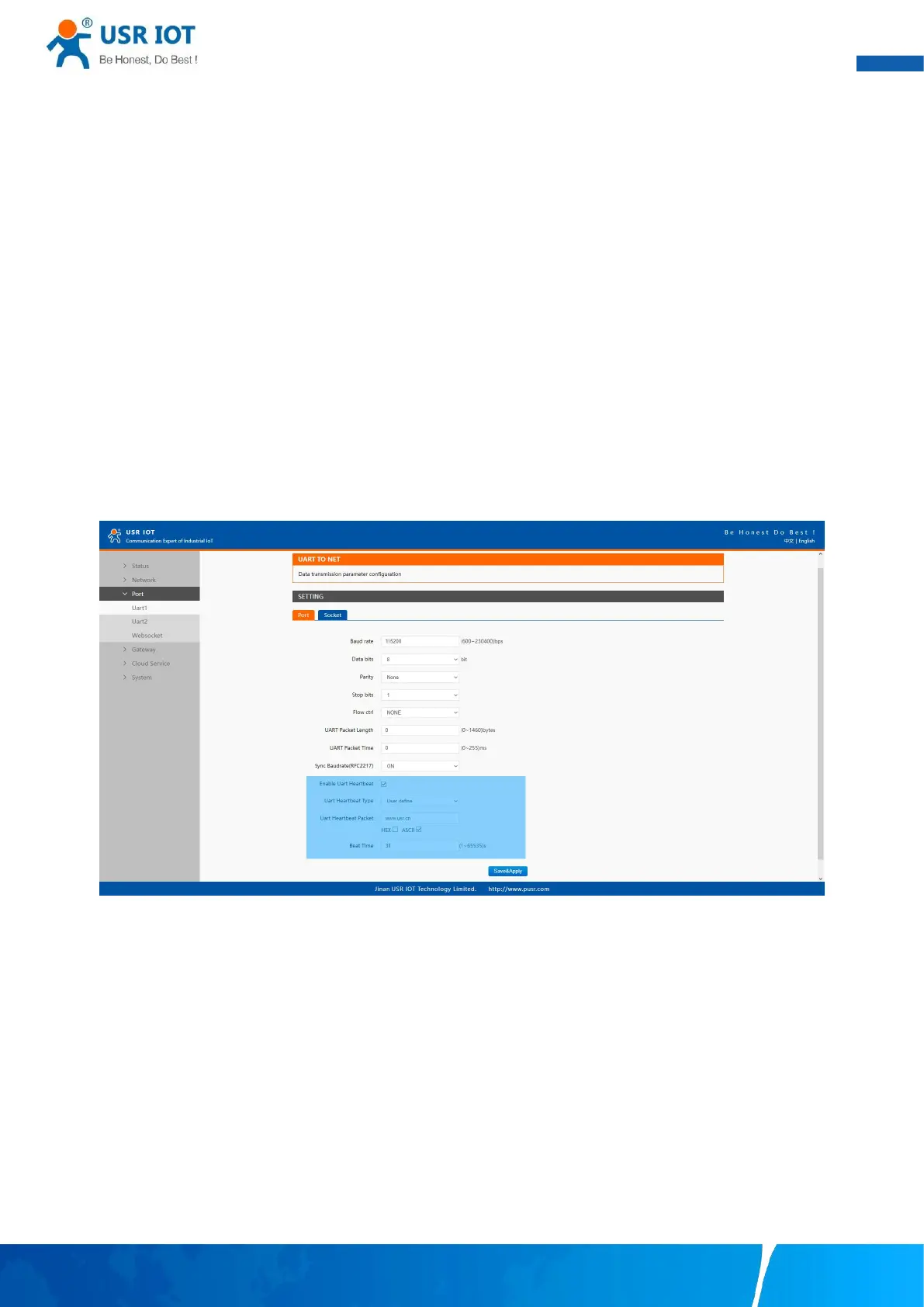User Manual
Your Trustworthy Industrial IoT Partner www.pusr.com
The optimal “ Interval timeout ” depends on the application, but it must be at least larger than one-character interval within the
specified baud rate. For example, assuming that the serial port is set to 1200 bps, 8 data bits, 1 stop bit, and no parity. In this case, the
total number of bits needed to send a character is 10 bits (included 1 start bit), and the time required to transfer one character is (10
(bits)/1200 (bits/s))*1000 (ms/s) = 8.3 ms. Therefore, you should set the “Interval timeout” to be larger than 8.3 ms. Rounding 8.3 ms
to the next integer would give you 9 ms. Which can be set as your interval timeout.
Packet length: USR-M100 will transmit the serial data in its buffer when the specified length in the unit of bytes has reached. If you
would like USR-M100 to queue the data until it reaches a specific length,the data length can be configured for 1 to 1460 bytes. If the
data length (in bytes) matches the configured value, the data will be forced out. Set to 0 if you do not need to limit the length.
7.2. Heartbeat packet
Network heartbeat packet: The M100 gateway sends a heartbeat packet regularly to notify the server that it is active and maintains a
normal network connection with the server. This function is only allowed when the working mode is UDP and TCP Client.
Serial heartbeat packet: The M100 gateway notifies the serial device it is active via packet, and this packet can also be used to actively
capture sensor data.
Heartbeat packet only works in no data traffic in the setting direction. There are no data coming from serial port or internet in
heartbeat interval.
Fig. 88 Serial heartbeat packets
